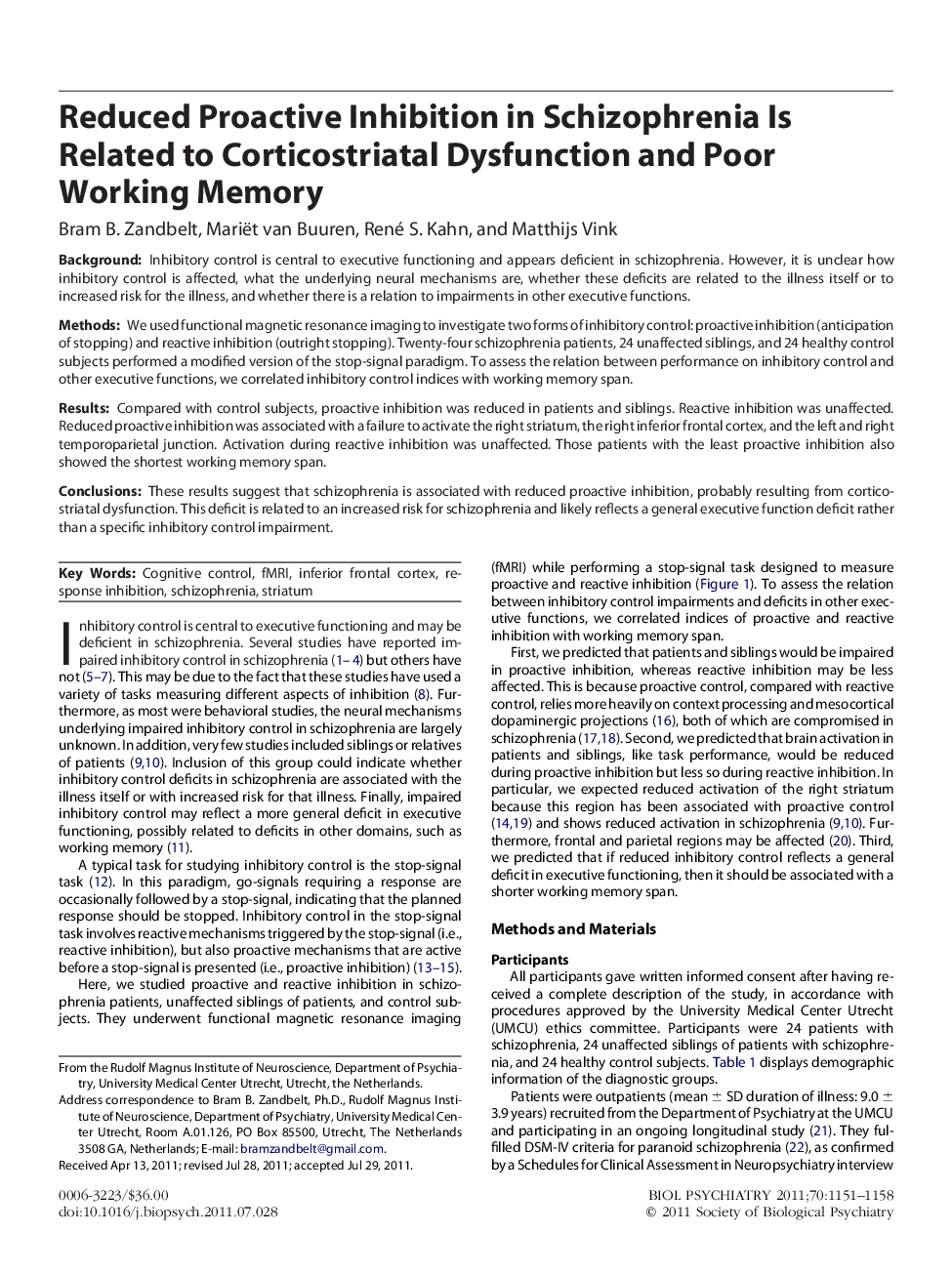| Article ID | Journal | Published Year | Pages | File Type |
|---|---|---|---|---|
| 4179020 | Biological Psychiatry | 2011 | 8 Pages |
BackgroundInhibitory control is central to executive functioning and appears deficient in schizophrenia. However, it is unclear how inhibitory control is affected, what the underlying neural mechanisms are, whether these deficits are related to the illness itself or to increased risk for the illness, and whether there is a relation to impairments in other executive functions.MethodsWe used functional magnetic resonance imaging to investigate two forms of inhibitory control: proactive inhibition (anticipation of stopping) and reactive inhibition (outright stopping). Twenty-four schizophrenia patients, 24 unaffected siblings, and 24 healthy control subjects performed a modified version of the stop-signal paradigm. To assess the relation between performance on inhibitory control and other executive functions, we correlated inhibitory control indices with working memory span.ResultsCompared with control subjects, proactive inhibition was reduced in patients and siblings. Reactive inhibition was unaffected. Reduced proactive inhibition was associated with a failure to activate the right striatum, the right inferior frontal cortex, and the left and right temporoparietal junction. Activation during reactive inhibition was unaffected. Those patients with the least proactive inhibition also showed the shortest working memory span.ConclusionsThese results suggest that schizophrenia is associated with reduced proactive inhibition, probably resulting from corticostriatal dysfunction. This deficit is related to an increased risk for schizophrenia and likely reflects a general executive function deficit rather than a specific inhibitory control impairment.
